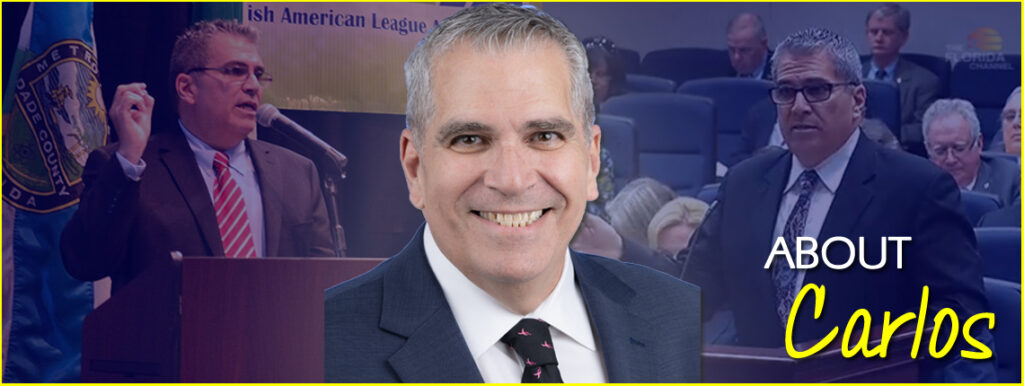
Carlos J. Martinez has dedicated his professional life to public service, especially in using his legal talents in service of the poor. He has been in public defender service for almost 33 years, 28 in senior management.
Carlos was born in Cuba and later came to the U.S. with his family on the Freedom Flights. His father and mother were his church’s janitor and receptionist.
As a youngster, Carlos often worked with his dad Celedonio, mopping floors and cleaning the Little Havana church, where his father worked as a maintenance man. Despite their hard work, Carlos’ parents were financially unable to send Carlos to their school of choice, Immaculata LaSalle High School. However, even as a teenager, Carlos’ work ethic, determination, and potential were recognized by the church’s pastor, who agreed to allow Carlos to attend Immaculata LaSalle High School without payment, in exchange for Carlos’ continued work at the church.
Carlos’ unrelenting drive produced results when he entered the business world at a young age. At 16, Carlos began working as a car wash attendant at an Exxon car wash. Within three years, Carlos was promoted, and was simultaneously managing six gas stations in Miami-Dade and Broward counties. Later he was recognized for achieving the highest profit in Exxon’s Southeastern region. “My parents taught me to help others and work hard. They told me that if I worked hard, I would be rewarded either through personal satisfaction or money,” said Carlos.
Through his full-time employment, Carlos was able to pay for his college education. He attended Miami-Dade College, the University of Texas-Austin and graduated from Florida International University, in 1985, with a B.A. in Political Science. His path to the Public Defender’s Office (PD-11) started when Carlos interned in June, 1988, as part of the University of Miami Law School’s summer honors program. In 1990, Carlos received his J.D. from the University of Miami, passed The Florida Bar exam and was hired as an assistant public defender.
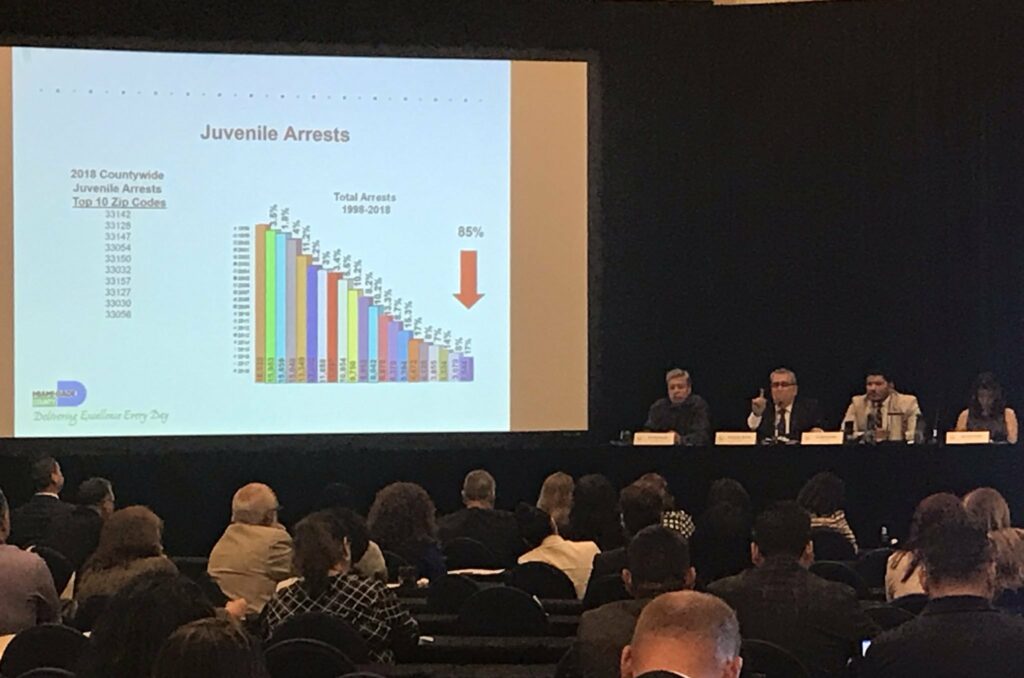
In 1992, Carlos moved to Bellingham, Washington to become a Deputy Public Defender. He returned to PD-11 a year later, where he continued his trial work in felony cases while also representing clients in the drug court. In 1995, he was promoted to law office administration. Carlos then distinguished himself by designing and implementing management and legal reforms, drafting and analyzing legislation and budget proposals, and overseeing the Office’s community relations.
Carlos has instituted many innovations to help his office cope with dwindling resources and fewer staff. Many have helped reduced traffic congestion and energy consumption. His work with police departments, Miami Dade County and municipalities will help reduce fuel and vehicle maintenance costs. Attorneys’ video conferencing with their jailed clients is now a reality in Miami Dade thanks to Carlos’ work with our local jails. This project has freed up unproductive attorney time (driving to and from far away jails) and generated more time for assistant public defenders to work on cases. To deal with staff reductions, Carlos applied for and received a federal grant to pay for two attorneys during the economic downturn, and secured the assistance of two additional attorneys paid for by large law firms to work in the Public Defender’s office for a year. He also developed a pro bono project for private attorneys to assist public defender clients.
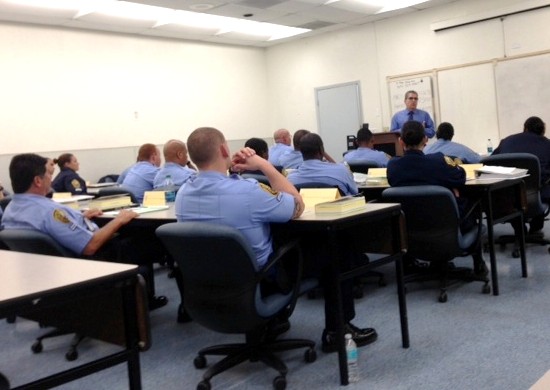
Carlos created the “Redemption Project” to help ex-felons regain their civil and employment rights, “Play It Smart” (a program teaching young people how to interact with law enforcement), “Consequences Aren’t Minor” (educating adolescents and adults about the direct and collateral consequences of illegal behavior and arrest), the Equal Justice Roundtable (a faith community collaboration to address social injustice and improve public safety), and a statewide public defender management training program. Carlos also developed his office’s strategic planning efforts and was instrumental in establishing the Public Defender’s Anti-Violence Initiative.
Carlos has a long list of outstanding honors and achievements. In 2018, Carlos was named a Champion for Children, receiving the prestigious Children’s Trust Excellence in Public Policy Award. In 2009, Carlos received the FIU Distinguished Alumni Torch Award for the College of Law and was inducted into the Miami-Dade College Alumni Hall of Fame. In 2006, the Florida Public Defender Association (FPDA) awarded Carlos the Association’s prestigious Craig Stewart Barnard Award for Outstanding Service. Carlos also served two years as Vice President of the FPDA. Carlos is a member of Iron Arrow, the highest honor bestowed by the University of Miami.
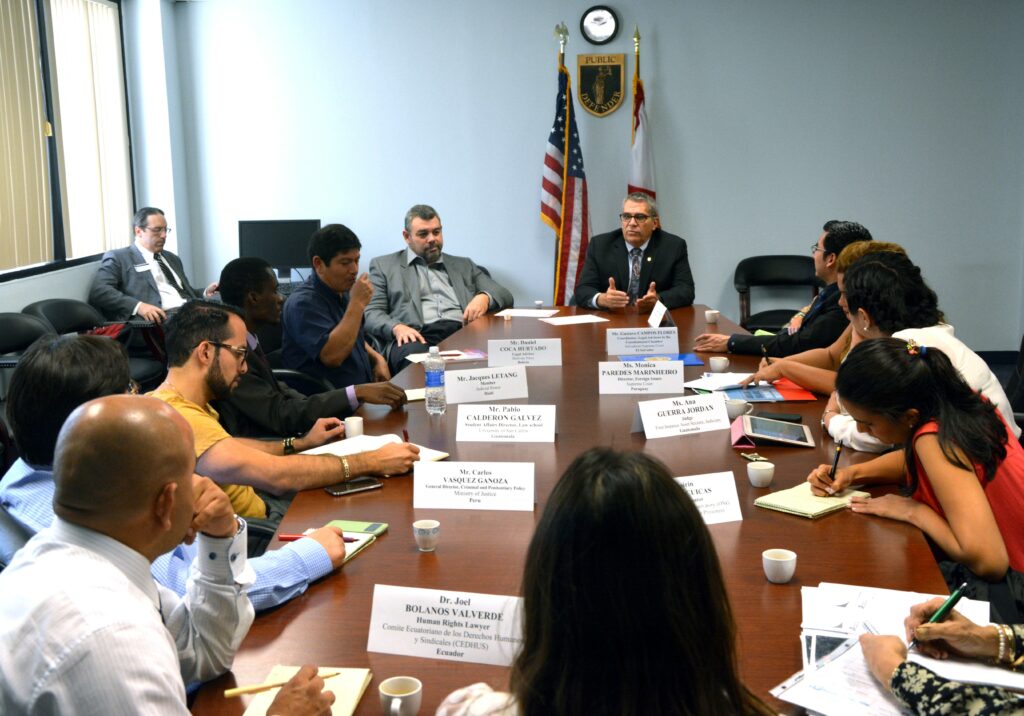
Carlos is an active member of numerous civic groups and local, state and national legal organizations. He served as government lawyer liaison to The Florida Bar Board of Governors and is a member to the University of Miami School of Law National Advisory Council.
Carlos authored a chapter, Helping Adolescents Succeed: Assuring a Meaningful Right to Counsel, for the book “In A New Juvenile Justice System Total Reform for a Broken System.” In addition, Carlos co-authored “The Best Defense is No Offense: Preventing Crime Through Effective Public Defense,” published in the New York University, Review of Law and Social Change.
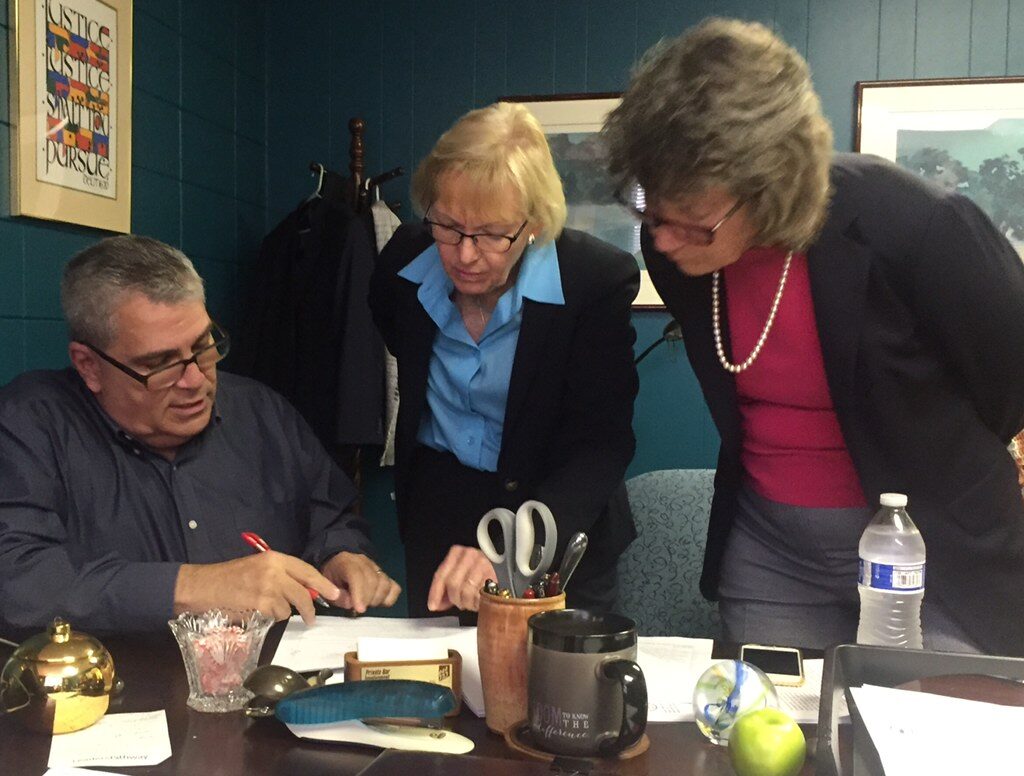
Carlos’ expertise and work on behalf of Florida’s youth were recognized by Walt McNeil, Secretary of the Department of Juvenile Justice, who appointed Carlos to the Florida Blueprint Commission on Juvenile Justice. Carlos has also been spearheading a legal reform initiative he created, Juvenile Justice CPR (Charting a Path to Redemption), which is designed to help troubled kids achieve the American dream. This effort followed closely on the heels of his successful endeavor that resulted in banning indiscriminate shackling of detained children in juvenile courts and helping write the law that eliminated unnecessary arrests of children in schools.
Carlos credits former Public Defender Bennett Brummer for encouraging and supporting his personal and professional growth. He credits his parents and his religious upbringing for his passion for social justice and for helping the poor. “I am living my American dream. I am doing something I love. I am fortunate to work in an office with highly dedicated individuals where we can be proud of what we do every day –helping people who are less fortunate and whose freedom and future well-being is in jeopardy. By serving as the Public Defender, I’m honoring my mother and father’s values and the sacrifices they made for us to live and prosper in a free country.”